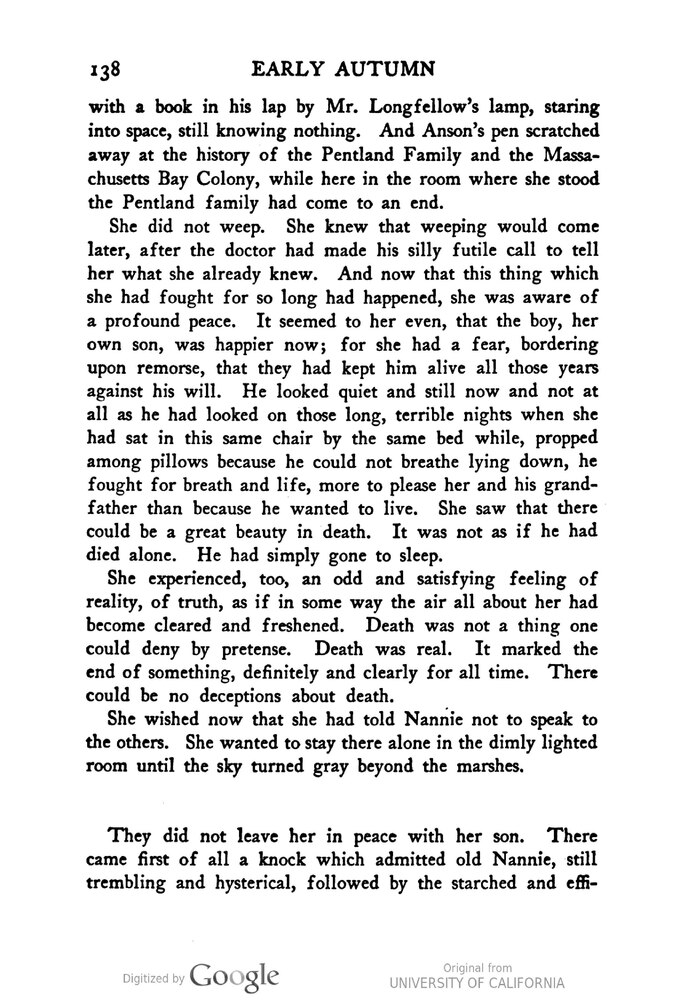with a book in his lap by Mr. Longfellow's lamp, staring into space, still knowing nothing. And Anson's pen scratched away at the history of the Pentland Family and the Massachusetts Bay Colony, while here in the room where she stood the Pentland family had come to an end.
She did not weep. She knew that weeping would come later, after the doctor had made his silly futile call to tell her what she already knew. And now that this thing which she had fought for so long had happened, she was aware of a profound peace. It seemed to her even, that the boy, her own son, was happier now; for she had a fear, bordering upon remorse, that they had kept him alive all those years against his will. He looked quiet and still now and not at all as he had looked on those long, terrible nights when she had sat in this same chair by the same bed while, propped among pillows because he could not breathe lying down, he fought for breath and life, more to please her and his grandfather than because he wanted to live. She saw that there could be a great beauty in death. It was not as if he had died alone. He had simply gone to sleep.
She experienced, too, an odd and satisfying feeling of reality, of truth, as if in some way the air all about her had become cleared and freshened. Death was not a thing one could deny by pretense. Death was real. It marked the end of something, definitely and clearly for all time. There could be no deceptions about death.
She wished now that she had told Nannie not to speak to the others. She wanted to stay there alone in the dimly lighted room until the sky turned gray beyond the marshes.
They did not leave her in peace with her son. There came first of all a knock which admitted old Nannie, still trembling and hysterical, followed by the starched and effi-
